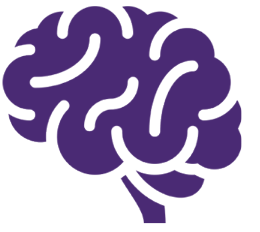Engage with QBI

Sign up to receive our monthly newsletters with our latest research updates
 Learn more about the brain through our BRAIN magazines
Learn more about the brain through our BRAIN magazines
 Join us at a QBI event helping to progress brain research
Join us at a QBI event helping to progress brain research

Join us for one of our scheduled tours to meet with our scientists
 Deep dive into QBI research by tuning into our Grey Matter Podcast
Deep dive into QBI research by tuning into our Grey Matter Podcast

Help progress vital research by volunteering for one of our clinical studies
You can help progress our research
You don't have to be a scientist to get involved with QBI. We offer a range of opportunities for everyday people to connect and progress our research and discoveries.
The foundation for all of our work is the funding we receive through a range of sources, including philanthropic donations from our generous supporters. There are many ways to give to QBI: directly, through planned giving, or holding fundraising events that entertain or challenge supporters as they dig deep to help us better understand the brain.
We also offer opportunities for students to learn directly from our inspiring researchers through lab placements, and for community members to tour our facilities and attend events. Finally, you can give one of the greatest gifts of all by volunteering for studies to advance treatments and diagnostics for brain diseases and disorders.
How you can support QBI

How you can fundraise to support our research

Leaving a gift in your will can have a profound impact
 Partner with us to improve lives
Partner with us to improve lives
Community & school programs
QBI hosts several community outreach events -and school programs to increase public awareness of the importance of basic science to inform the innovations of tomorrow.
What your donations fund
Through your support you are helping QBI solve the major neurological health challenges facing our community today

World leading research

Brightest scientific minds

Solutions to global health challenges
Brain Research Endowment Fund
Find out more Donate to research
QBI’s Brain Research Endowment Fund supports scientists exploring the unknown, which will guide new research on finding cures for diseases or improving quality of life.
Research in action
- In May 2025, QBI's Queensland Brain Injury Collaborative (QBIC) hosted the inaugural Gold Coast Roadshow, building on the success of its previous regional roadshow series to help improve the lives of people living with brain injury.
- Throughout 2024/2025, QBI researchers have continued to make new discoveries, advancing research into new treatments for neurological conditions. We have highlighted some of this work in our latest Research Impact Report.
- Professor John McGrath has led a significant study that has found evidence that people with lower vitamin D concentration as babies have an increased risk of later developing mental disorders such as ADHD, schizophrenia and autism spectrum disorder.




